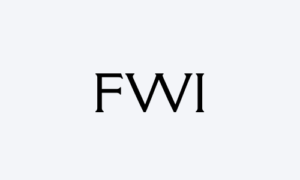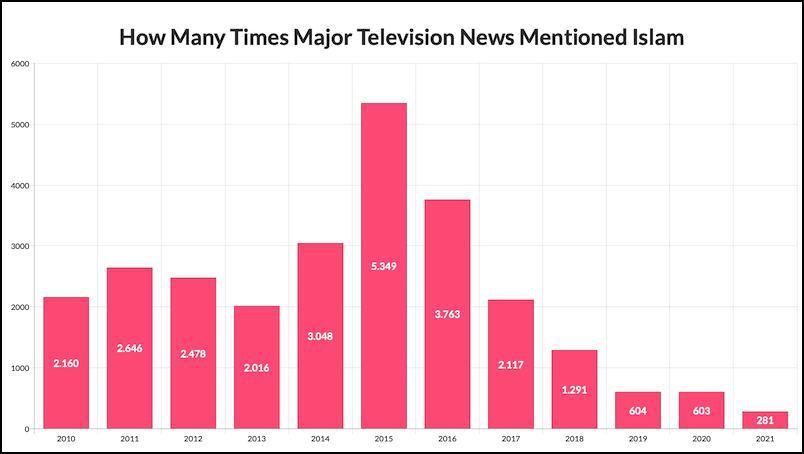
Publisher: Daniel Pipes
Managing Editor: Dexter Van Zile
Investigative Reporter: Susannah Johnston
Mission
Focus on Western Islamism (FWI) educates its readers about the threat posed by Islamism (and the efforts to counter it) in Western democracies. It covers stories that other outlets will not, provides a template for coverage for other journalists to follow, serves as a hub for counter-Islamist research and analysis, and seeks to give voice to anti-Islamist Muslims.
Topics
FWI does not cover Islam in the West, but Islamism. Islam is a 1400-year-old faith that includes a great range of sects and movements, while Islamism is a century-old utopian political ideology that seeks to return to past glories by imposing medieval religious laws on modern societies, Western democracies especially.
For FWI, Western includes not just Europe, North America, and Australia but also, and to a lesser degree, Latin America, Japan, and South Korea; all areas where Islam is a recent phenomenon. FWI’s coverage excludes peoples and territories, especially of southeastern Europe, where Islam is centuries old.
FWI stories typically fall into three categories:
- The efforts of Islamist countries, leaders and organizations to transform Western democracies into sharia-compliant states and make Islamic doctrine and practices the dominant force in public life in these countries.
- The failure of Western elites to counter these efforts.
- Prescriptions of how Westerners can protect their freedoms in a responsible and effective manner.
Audiences
The publication has a number of different audiences. It includes academics and government officials who are knowledgeable about the threat of Islamism and want to keep abreast of what Islamists are doing. Another segment of our audience is non-specialists who are worried about Islamism and rely on FWI to instruct them about the movement. And yet a third group comprises journalists, some of whom are hostile to the cause of counter-Islamism. Our hope is that our work will encourage this third group to report on the impact Islamism has on the communities they purport to serve.
Reporting Methods
FWI engages in traditional reporting techniques when covering its beat. These techniques include open-source information gathering, on-the-scene reporting, interviews with knowledgeable sources and reaching out to Islamist organizations and individual leaders for comment about their activities in the West.
FWI regards undercover reporting as a legitimate part of investigative journalism. Undercover reporters have a long history of exposing the supremacist agenda of organizations that portray themselves as virtuous and legitimate charities and civil society institutions in the Western democracies. Consequently, FWI will use undercover methods of reporting as the law allows.
FWI’s ultimate goal is to counter and defeat Islamist efforts to undermine and replace the system of rights and responsibilities that have been established in Western democracies with the practice and ideology of religious supremacism.
The Need for a Focus on Western Islamism
by Daniel Pipes
Why this website, why this publication? Because the West needs it.
Some background: Islamism in the West burst into public attention with the book burning and radical statements that accompanied the 1988-89 attacks on Salman Rushdie and his novel, The Satanic Verses. Ayatollah Khomeini’s death edict made Western publics aware for the first time, and with due shock, that quietly growing populations of Muslims presented civilizational problems that, say, Chinese, Hindus, and Christian Africans did not. These boiled down to a minoritarian but powerful desire to apply medieval-style Islamic laws (the Sharia) in the West, with all their dire implications for non-Muslims and females, and to transform Western societies.
A long sequence of attacks over the next dozen years associated Islam with violence. Some won great notoriety but none achieved major proportions: for example, the World Trade Center bombing of 1993 killed only six and the attempt to bring down the Eiffel Tower failed. Jihad remained a somewhat erudite concern, mostly limited to policy types. Meanwhile, Islamists organized and gloated at their unimpeded advance.
Then came the world-shaking events of Sep. 11, 2001, with three thousand dead and the cessation of normal life throughout the United States. As I put it at the time, no American man proposed marriage to a woman on that day. “Everything changed,” “United we stand” became near-universal mantras. NATO’s one-for-all clause went into effect for the first and only time. Suddenly, and for years to come, Islam, Muslims, Islamism, and jihad became the center of international attention. Korans sold out, the difference between Sunnis and Shiites became common knowledge, and hitherto rarefied topics like the Hadith became the stuff of talk shows. From tabloids and blogs to broadsheets and cable news shows, the press offered in-depth profiles and exposés uncovering radicalism in Islamic institutions. Schools and politicians followed suit.
Along with this attention came a repurposing of security institutions to focus on jihad: the military, intelligence services, and law enforcement all retooled to prevent a repeat of 9/11. Their impressive success then had two lasting implications: First, Islamists generally turned from violence to working within the system, from criminality to lawful Islamism. Second, the absence of blood running in the streets, along with the rise of other issues (Trump, China, the woke Left, climate change) lessened interest in Islamism. Editors, producers, politicians, educators, and the general public seemed to have had their fill of it.
That decline can be measured. To take one index, U.S. television news mentioned Islam two thousand-plus times in the years 2010-13, three thousand-plus times in 2014, and peaked with five thousand-plus times in 2015. It then went down to three thousand-plus times in 2016, two thousand-plus in 2017, one thousand-plus in 2018, six hundred-plus in 2019-20, and a mere two hundred-plus in 2021. In other words, Islam was mentioned 19 times more often in 2015 than six years later. That ratio would seem to hold for much else as well, and not just in the United States. Islam and related topics have reverted to their pre-9/11 semi-obscurity.

Of course, a collapse in interest does not imply a commensurate decline in the Islamist challenge. Indeed, the money, skills, energy, and dedication of lawful Islamists make them arguably more dangerous than ever. The Left broadly appeases them and the Right currently cares more about past elections and vaccine mandates. Governments subsidize the Islamists, educational institutions welcome them, legislatures accommodate them, judges fitfully adapt to them. “Islamophobia,” colorfully described by Andrew Cummins as “a word created by fascists and used by cowards to manipulate morons,” has even become a legal term.
In the face of this, we at the Middle East Forum soldier on, warning of disasters to come. As Daniel Greenfield has noted, “Counter-jihad investigative groups such as the Middle East Forum … continue to do important work in the face of declining interest from conservative media. … in the absence of a single major devastating Islamic terror plot, just a steady stream of smaller ones, mostly unsuccessful, fewer are paying attention to the ticking time bomb of Islamist influence. Much like the silence before the storm on September 11, that is an error we will come to regret.”
Focus on Western Islamism launches in these unhappy circumstances. Our guiding philosophy is the one I articulated in the aftermath of 9/11: “Radical Islam is the problem, moderate Islam is the solution.” To be very clear: we fight Islamism the ideology, not Islam the religion. That said, Islamic supremacism, jihad, slavery, the oppression of women, and other problematic features are indelible hallmarks of traditional Islam that Muslims must acknowledge before they can adapt their religion to modernity. These features cannot be apologized away but must be confronted before true reform can begin. Then, Muslims can interpret the Koran and Hadith allegorically, abrogated, or dealt with in other creative ways, as they see fit.
Western for us expansively includes not just Europe, North America, and Australia but also, and to a lesser degree, Latin America, Japan, and South Korea; all areas where Islam is a recent phenomenon. Our coverage excludes peoples and territories, especially of southeastern Europe, where Islam is centuries old.
FWI has three paramount goals: to provide a setting where authors can find an audience and readers can find serious and literate analysis; to give voice to anti-Islamist Muslims; and to investigate Islamism’s inner workings, with a special attention to such topics as intramural Islamist fighting, Islamist sources of funding, Islamist spending, and what gets whispered behind closed doors. We hope and plan to become a forum to combat the scourge of Islamism by convincing the skeptical, motivating the convinced, and guiding the motivated.
Mr. Pipes (DanielPipes.org, @DanielPipes) is president of the Middle East Forum. © 2022 by Daniel Pipes. All rights reserved.